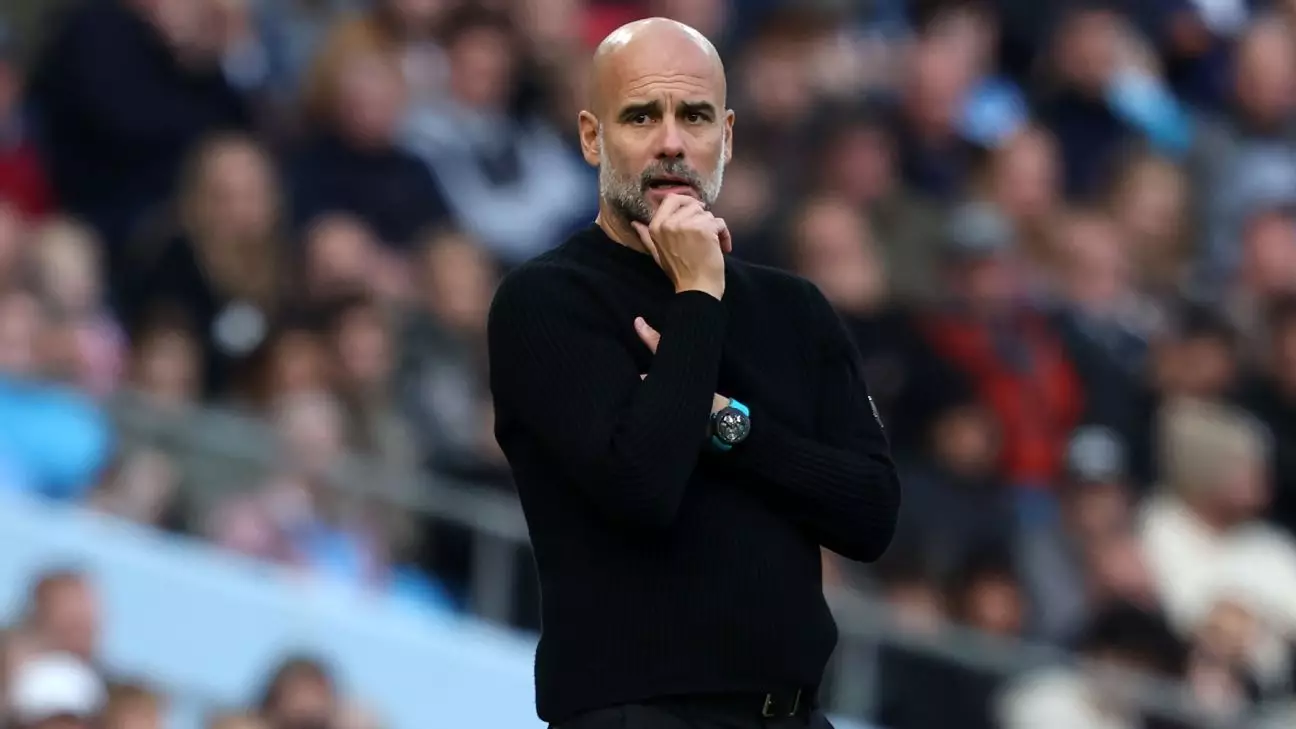As the English national football team embarks on a crucial phase post-Gareth Southgate’s tenure, discussions surrounding the next manager have intensified. With the Football Association (FA) seeking a suitable replacement, key figures like Thomas Tuchel and Pep Guardiola have emerged as potential candidates. This article dissects the current landscape of managerial choices, considers the implications of these appointments, and evaluates the surrounding narratives that may influence the FA’s decision-making.
Thomas Tuchel, renowned for his accomplished stints at clubs like Paris Saint-Germain and Chelsea, finds himself in search of a new role since his departure in May. Reports indicate that Tuchel is keen on the England managerial position, possessing a track record that speaks volumes about his tactical expertise and experience in high-pressure scenarios. His ability to galvanize teams and adapt to various playing styles makes him a compelling choice for the Three Lions.
On the other hand, Pep Guardiola presents a captivating yet complex option. Currently at Manchester City, his contract is set to expire at the end of the season, and there is speculation about his ambitions at the international level. Guardiola has openly articulated a desire to manage a national team, which adds a layer of intrigue to his candidacy. However, the FA has yet to make a formal approach, leaving uncertainty regarding Guardiola’s interest in the role. This ambiguity could be influenced by external factors, such as the ongoing trial against Manchester City regarding alleged financial rule violations, which may shape his future decision-making.
Impact of Managerial Decisions on Team Dynamics
The forthcoming international break presents a pivotal opportunity for Guardiola, coinciding with the conclusion of Lee Carsley’s interim management. Carsley was tasked with steering England through crucial fixtures following Southgate’s departure after a disappointing exit in the Euro 2024 final. As he prepares for his final matches, including a significant clash against Greece, the question lingers: should Carsley aspire to retain the role permanently, or is the FA actively pursuing other candidates?
Previous performances under Carsley included wins against lower-tier teams and recent setbacks that could complicate his chances of securing the role permanently. While he stepped up from his position with the Under-21 squad, the FA appears to have been proactive in exploring alternatives regardless of Carsley’s outcomes. This raises larger questions about stability and continuity in the England setup; a new manager might bring a fresh approach but could also disrupt any emerging rhythm within the team.
The FA has set clear criteria for the new manager, emphasizing the necessity of “significant experience of English football” and a proven track record in either the Premier League or international competitions. This criteria inherently favors established candidates with a history of success in high-stakes environments, putting pressure on emerging managerial talents like Eddie Howe and Graham Potter, both of whom have yet to secure major accolades to their names.
Furthermore, the context surrounding the team’s ambitions is critical. England is on the brink of a potential breakthrough, having reached consecutive Euro finals under Southgate. As the nation looks ahead to the 2026 World Cup, the urgency for the FA to appoint a manager capable of converting aspirations into tangible victories could very well dictate their choice.
The potential ramifications of appointing a foreign manager like Tuchel or Guardiola stretch beyond mere tactical implementations. Historical trends show that national identity and connection to local football Culture can significantly affect team morale and public perception. The FA’s openness to foreign candidates thus invites scrutiny regarding cultural alignment and strategic philosophy.
In essence, the FA finds itself at a crossroads: selecting the right figurehead could pave the way for a new era, yet the wrong choice might yield setbacks akin to those previous regimes endured. As the footballing world watches attentively, England’s quest for a new leader underscores the delicate balance between ambition and pragmatism in the cutthroat realm of international football management. Ultimately, who takes the helm will define not just the next chapter for the national team but also the broader narrative of English football’s evolution.

Leave a Reply